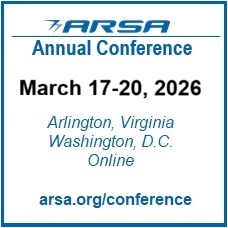Expanded Drug and Alcohol Testing Program To Make Major Impact on Aviation
Thousands of Small Businesses Potentially Affected
WASHINGTON, D.C. May 19, 2004 – The Federal Aviation Administration (FAA) is preparing to drastically increase the scope of its antidrug and alcohol misuse testing program. These rules apply when maintenance or other safety-sensitive functions are performed in the United States directly or by contract for U.S. air carriers.
Air carriers frequently utilize direct contractors and subcontractors to perform maintenance on their aircraft and related products. A May 17, 2004 FAA “clarification” to its regulations will extend the testing requirement beyond repair stations (maintenance providers certificated by the FAA) — to their non-certificated contractors and subcontractors. The testing requirement would apply at any tier of the contract, regardless of how far the subcontractor was removed from the air carrier.
For example, the proposals would apply to commercial dry cleaners that clean seats or upholstery following their removal from aircraft. Also potentially affected are companies that repair common consumer electronic items, such as VCRs and DVD players, if they are subsequently installed in aircraft.
Under FAA regulations, these companies cannot take airworthiness responsibility for the work they perform because they do not hold an FAA certificate. Safety is assured, however, because the certificated repair station remains directly in charge of all work performed by the non-certificated company. Employees of certificated repair stations are covered by the drug and alcohol rules when they perform covered work.
In 2002, the Aeronautical Repair Station Association (ARSA) led a coalition of 14 aviation industry groups that submitted joint comments to the FAA pointing out the impracticalities and problems associated with requiring air carriers and their direct contractors to ensure that multiple tiers of the maintenance process were part of an FAA drug and alcohol program.
In the May 17th “Supplemental Notice of Proposed Rulemaking”, the FAA rejected the industry’s concerns, claiming that the number of additional contract providers potentially subject to the rules is small (less than 300); that the extensive testing requirements and associated costs already exist, and that therefore the rule is merely clarifying in nature.
ARSA continues to believe, however, that the expanded testing program will be costly and impractical, while offering no meaningful safety benefit:
- Far more than the 300 additional companies estimated by the FAA will have testing obligations. If the contractor performs any maintenance function for repair stations that perform maintenance for air carriers, then the contractor must participate in drug and alcohol testing.
- Many contract providers are not fundamentally in the aviation business. They may choose to stop serving the aviation industry entirely, rather than face the burdens and costs of employee drug and alcohol testing.
- An air carrier would be held responsible for the compliance of an entity with which it has no contractual relationship.
- Subcontractors who are not even aware that their work is aviation maintenance-related would have to drug and alcohol-test employees.
- Even aviation manufacturing employees may be covered by the testing requirements if they occasionally perform maintenance.
“ARSA is extremely disappointed that the FAA appears determined to finalize these proposals in spite of the extensive record that they are not necessary in the interests of safety,” according to ARSA Managing Director & General Counsel Marshall S. Filler.
“They would impose substantial cost burdens on small businesses that work primarily in industries other than aviation, create a logistical nightmare for the airlines and their direct maintenance contractors and further strain FAA inspector resources. As it did in 2002, the Association intends to vigorously oppose the FAA proposals and will be working closely with other industry groups in an effort to persuade the FAA to withdraw them.”
About ARSA
The Aeronautical Repair Station Association represents the interests of aviation maintenance and alteration facilities before the FAA, the NTSB and other agencies. Founded in 1984, ARSA is the leading provider of regulatory training and compliance information for aviation design, production and maintenance.







